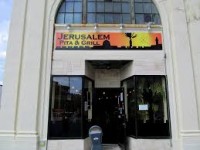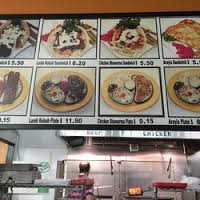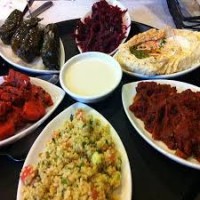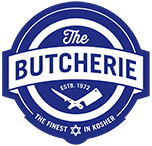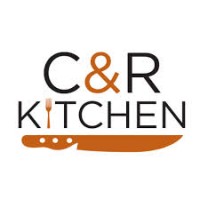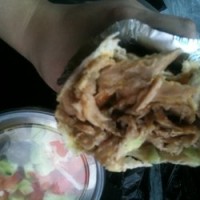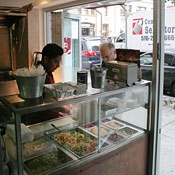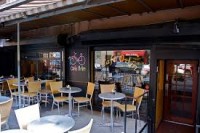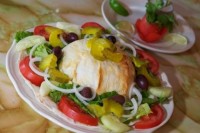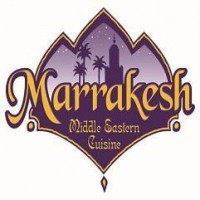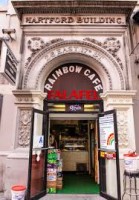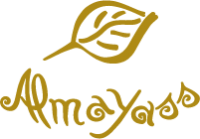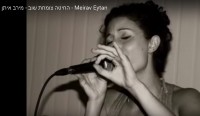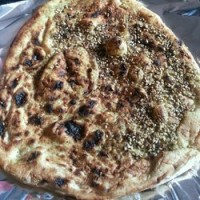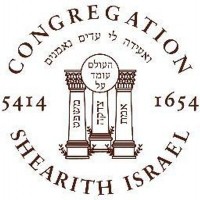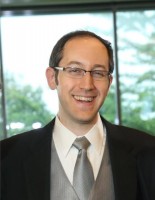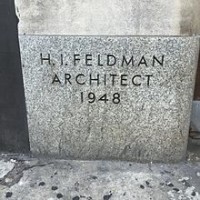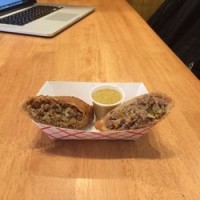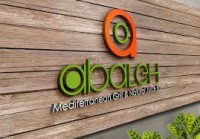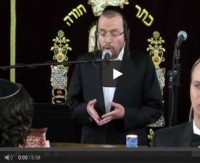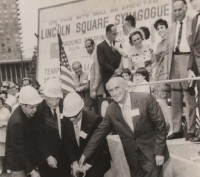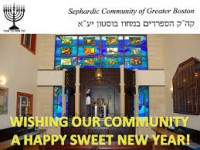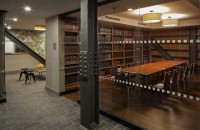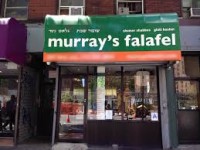Best falafel I've had outside of Israel. Delicious, warm, and crispy. I was hesitant because of the Yelp reviews but this place was so good!!! The service is great- kind and attentive.
I thought I had tried everything in the Coolidge Corner area until I was introduced to Jerusalem Pita & Grill by a co-worker. It's a bit off the beaten path on Pleasant St, one block away from the main thoroughfare of Harvard Ave. I'm so glad he introduced me to it!
First off, the restaurant serves kosher foods, so if you can only eat kosher foods, it's a great option. Usually kosher means more expensive, but I didn't find the prices overwhelming. We got the Beef Asli to start – apparently it's one of the more popular appetizers. Note, however, that it's found in the Hummas section. The meat was cooked perfectly and the hummus added just the right amount of texture and flavor without overwhelming the dish. The best part of all? The bread. Apparently it's homemade and fresh every single day. I have rarely gushed about how good the bread is, but this is one of the best breads I have ever eaten. Spreading the hummus and beef over the bread and chomping down on it is quite an experience.
For my entree, I got the Beef Burger and my co-worker got the Shawarma. Both were excellent and both portions were HUGE. Neither of us were able to finish the meal especially after having consumed the appetizer. Kosher beef certainly has its advantages and it showed up in the taste of the burger. While I do often prefer greasier and fattier burgers, this is one that you won't need to run 5 miles to get rid of the grease afterwards.
Overall, an excellent option in Coolidge Corner. They have so many other options on the menu that I'm looking forward to trying again.
The food itself was good. I had the turkey shawarma, which was as good as I've had anywhere. Be warned, even the "mild" has some spiciness to it. The chicken wraps were good and juicy (and not spicy).
Before the meal they brought out little plates of appetizers/salads. These are tasty, but it would be nice if they'd automatically bring out extra forks and plates with these, especially when it's a group. Otherwise it can get rather messy.
Also note, it's some kind of unwritten rule that the service at kosher restaurants will be very slow, and it was no exception here. Expect to wait before ordering, to get your food, for the bill, for everything. The servers were nice, just slow.
Do you know that feeling when you're hungry and looking for something to eat that's comforting, filling, kinda healthy (but not reaaally that healthy) and out of your normal pizza/burrito/tikka curry routine? No? Maybe that's just me… the point is Jerusalem Pita & Grill is what fills that craving.
The restaurant is bright, sunny and conveniently located right in Coolidge Corner. Good for take out or table service, you're served a trio of exotic Mediterranean salads as a teaser to your meal. In my aforementioned "healthy but not too healthy" craving, I chose a chicken pita, which was absolutely brimming with juicy, hot white meat chicken, fresh and crunchy green veggies, tomatoes and homemade hummus and a dash of special hot sauce. It was delicious, huge and hit the spot.
The waitstaff was so attentive and friendly, and I honestly felt more like a guest than a patron. Constantly refilling my water and helpfully answering any and all questions, they won me over. I'll definitely be back. Oh, did I mention, they bake their own bread in house?
- ספרים למנויים reviewed לפני 8 שנים
Delicious shwarma. Don't expect the best service from the waitstaff, but the food definitely makes up for it. Authentic Mediterranean
- I love the Shawarma wrap. They give you a lot of food, and it is always good.
- You must login to post comments
מירב איתן היא זמרת נדירה עם ניחוח של פעם. היא עוטפת בקולה את המאזינים בחום ובאינטימיות כובשת, ומציפה את אוזנם ברומנטיקה נצחית. במקור מישראל, היא החליטה ללכת בעקבות ליבה וליצור מוזיקה עם אומנים מרחבי העולם. חלומה הוא ליצור גשרים מוזיקליים שיחברו בין כל תושבי העולם לכדי קהילה אחת גדולה.
Meirav Eytan is a rare and soulful singer with a spellbinding voice. Originally from Israel, she decided to follow her heart and to collaborate with musicians from all over the world. Meirav courts a timeless romance with her voice. Her singing style is rare in its warmth and intimacy, beckoning flesh and spirit. She dreams of bridging distances between people and places, far and wide, through the music.
הזמרת מירב איתן חברה בהרכב Maple Sky והיא חלק מרכזי במופע Wish מברדווי
Maple Sky is an international vocal duet. Two artists from two different corners of the world use their voices to create a pure, uplifting energy that seems to drift in midair. It surrounds the audience with warmth and joy and connects each listener to a deep spiritual presence within their heart. The music inspires a sense of a warm, embracing worldwide community. It is a timeless romance of poetic lyric, intertwining melodies, uncommon rhythms, passionate singing, and heartbreaking harmony.
Porter Smith composes, accompanies on 7-string guitar, and sings tenor with international alto Meirav Eytan. They are lovers on stage as they are in real life.
Porter is a Renaissance man. His imagination flows widely and evenly in musical and literary directions. A New American Mythology author, playwright and lecturer, an innovative composer, a searing romantic lyricist, and a heartfelt performer, he dedicates his creative work to bridging distances between people and places far and wide.
Meirav is a rare and soulful singer with a spellbinding voice. Originally from Israel, she decided to follow her heart and collaborated with Porter to bring this unique musical art form to the world. Meirav courts a timeless romance with her voice. Her singing style is rare in its warmth and intimacy, beckoning flesh and spirit.
Maple Sky's original compositions are influenced by Classical music, Folk, Jazz, Soul, Theater, and World music.
Chef & Owner Rafael Hasid
Rafael Hasid (better known as "Rafi" to his friends and regulars at Miriam) is a native of Tel Aviv, Israel and opened up Miriam Restaurant in 2005 after graduating from the French Culinary Institute in 2001 and working as a chef in Le Pere Pinard and Yamamoto's in NYC.
Rafi named his restaurant after his mother, who still resides in Israel but makes the trip out to Brooklyn every year to spend time in the restaurant. Every year Rafi hosts a "Biblical Feast" menu where he celebrates the back-to-earth philosophy of eating simple, and uses quotes from the bible in the specific instances where the foods were mentioned.
Israeli Cuisine
At Miriam Restaurant the cuisine is uniquely, distinctly Israeli. Our menu is seasonal, and all of our beef is grass-fed, and many of our ingredients come straight from Israel. Yet what exactly is Israeli cuisine? Truthfully, to enter the subject is not unlike entering a sea by foot and feeling a sudden deepening. Unlike French food, Chinese food, Italian food, one does not unfold the menu at Miriam with a set of associations firmly in the mind. In truth, there exists no single dish, no single style of preparation that one might call uniquely Israeli. And yet this lack of identity is its identity, its beauty.
A bi-product of the cross-pollination that accompanied the gathering together of Jewish people from around the globe, one might say that, in itself, Israeli cuisine is as close to a true world cuisine as exists. When citizens arrived after World War II, each group brought a tradition of culture and cuisine as set in its ways and one of a kind as a river. And yet suddenly something different was happening around these peoples. They were breathing different air. There was a new climate and a new terrain. Things like figs, thyme, marjoram, and pomegranates were growing in their outlying fields.
Bound by a new common ground and also by a tradition of kosher, foods from Eastern Europe and North Africa began rubbing shoulders, mingling, conversing. Interactions occurred with traditional Middle Eastern dishes. As might be expected, friction was produced. We might say that there were two competing impulses: the new Israeli people felt a desire to preserve their particular identities and also a desire to forge an entirely new one. It is from this dual parentage that evolved and continues to evolve what we must call contemporary Israeli cuisine. It is from this heritage that Miriam Restaurant springs.
על המקום:
So I'm touring the LES with my wife and friends when someone says, "Let's get some waters so we don't die today." We look across the street, and as if out a vision, the Holyland Market appears. Fortune had smiled upon us, as only on my birthday would I enter my first Jewish bodega.
As luck would have it, the entire bodega was out of water! But never fear, as they had something even better. Giant challahs.
I'm used to secret bodega gems like Zaragoza, where you can unexpectedly find tacos. Never in my wildest dreams did I expect a bodega of my people.
As we walked around the LES sharing bread, dipped in the bowl of chocolate that my sister-in-law randomly had, I felt like a big birthday mensch.
Standouts include the hummus (best and creamiest on earth), the borekas (homemade flakiness), the babka (chocolate or cinnamon, both dense circles of breakfast joy), the packaged snacks (junk food, but unique junk food), the candy near the register, and that Nutella-esque chocolate spread. They also carry pita from Pita Express, which is a beautiful, beautiful thing.
Also, Hebrew-language women's magazines, which will explain how to lose all the weight you've gained by shopping here.
Best. Pita. Ever. The super fluffy thick kind. And all the Elite chocolate you could possibly want! I ended up getting chocolates, zaatar, pita and other things that I have to request from my parents when they go to Israel. Now I can just hop on the F, go to St. Marks Place and by all that stuff that I crave. Will definitely make the trek back!
בקורת:
I have been to several restaurants that serves hummus and this is by far my favorite place in town for it.
Hommus: chick pea puree, tahini, lemon, olive oil. I believe their hommus is made to order, because it's served at room temperature. It's just more pleasant to eat than cold ones. It's also drenched in good olive oil.
Warm Eggplant: tomato, scallions, tamarind molasses. It's more interesting than the baba ghannouj because the eggplants are warm and the molasses makes it a sweet dish.
Phoenician Fries: sumac, parsley, garlic whip. I really like these fries with the aioli! They came out piping hot.
Whenever I want some fresh made hommus, I like to come to this place. I don't need the bread, I simply like to order 3 plates of mezza and eat them by the spoon.
Definitely coming back here for brunch! I trekked through the winter storm Jonas to eat with a friend who was visiting– despite the horrible weather conditions, the waitstaff were incredibly polite and courteous.
The brunch prix fixe menu lets you have two drinks, a main dish, and a side. For $28 in NYC, I think this has one of the better brunch values. The lamb burger is definitely amazing- the melted feta and pickles take the cake.
I'm a huge fan of the roasted beet side dish- the Aleppo honey butter just made it perfect. The sausages were a tad too salty, but they give you a basket of pita, so you can dip it in the grease and use it to balance the saltiness of the meats.
My first restaurant week menu coming into the new year. Picked Ilili because I do not have to worry about eating unhealthily even if I go wild during the night (cannot go too wild anyway given the limited amount of RW course set up).
At Ilili, you first choose from two appetizers (as opposed to one), followed by a main dish, and eventually the dessert. My friend and I were basically sharing everything – hummus, garlic eggplant, falafel and the marinated chicken liver. Like the eggplant the most as it was refreshing; chicken liver was a bit disappointing…Both the chicken and lamb chop were fantastic, juicy! I opted for the vanilla panna cotta for dessert. Thanks to the sour raspberry on top, it was not too sweet.
Service was for sure a minus point here – cannot blame them as we all sort of understand how RW could mess up the whole thing. My suggestion would be to visit Ilili during a normal hour and see how well it goes. Took away one star here and look forward to adding it back.
קהילת שארית ישראל נוסדה במנהטן, ניו יורק בשנת 1654, על ידי מגורשי ספרד ופורטוגל, ונחשבת לקהילה היהודית הוותיקה בארצות הברית. בית הכנסת של הקהילה, המכונה גם "ספרדי-פורטוגזי" ("Spanish and Portuguese"), מתפקד כאורתודוקסי. ממוקם ברחוב 70 (מערב), ניו יורק.
הקהילה נוסדה ב-1654 על ידי 23 מהגרים יהודיים, שבאו מברזיל, ונחשבת לקהילה היהודית הממוסדת הראשונה בארצות הברית.[דרוש מקור] במשך השנים, השתתפו חברי הקהילה במאבק למען זכויות אזרחיות ליהודי ארצות הברית, ובהדרגה השיגו את מבוקשם. מכיוון שהקהילה הייתה הקהילה היהודית היחידה בעיר ניו יורק עד שנת 1825, שארית ישראל תפקדה בתור המרכז של החיים היהודיים, סיפקה מקום לתפילה ולימוד – הן חילוני והן תלמוד תורה, כמו גם מקום לשירותים דתיים (אוכל כשר, מקווה וכו') ומפגשים חברתיים.
Weekday Services January 31 – February 5, 2016 5776 – Mishpatim – Sunday – Friday – January 31 – February 5, 2016
SCHEDULE
Morning Services
Sunday 8:00 am
Monday – Friday 7:15 am
Sunday – Thursday 6:30 pm
Shabbat Services February 5 – 6, 2016 Mishpatim – 5776 – Friday Eve & Saturday – February 5 – February 6, 2016
SCHEDULE
Friday
Candle Lighting 5:00 pm
Services 5:00 pm
Saturday
Morning Services 8:15 – 11:45 am
Torah Reading: Mishpatim
Seuda Shelishit & Class 3:55 pm
Minhah & Arbit 4:55 pm
Sunset 5:19 pm
Habdalah 5:48 pm
Rabbi Yosie Levine joined The Jewish Center's rabbinic team in 2004. He earned a BA in English and Comparative Literature from Columbia College and was awarded the university's William F. Curtis award for outstanding oratory. A Wexner Graduate Fellow, Rabbi Levine received rabbinic ordination from the Rabbi Isaac Elchanan Theological Seminary and was the winner of RIETS' writing prize. He holds an MPA in Public Policy from NYU's Robert F. Wagner Graduate School and is currently pursuing a doctoral degree in Modern Jewish History at Yeshiva University's Bernard Revel Graduate School. Rabbi Levine served as Rabbinic Intern, Assistant Rabbi and Associate Rabbi at The Jewish Center where he received practical rabbinic training and mentoring from Rabbi Ari Berman. Before joining the Center, he served as the educational director of the Lauder Foundation's Beit Midrash in Berlin, Germany and as the visiting scholar of Congregation Knesseth Israel in Birmingham, Alabama. Rabbi Levine has taken a leadership role on the issue of day school affordability and serves as the chair of Manhattan Day School's Political Advocacy Committee. He is co-chair of the Manhattan Eruv and is active in numerous communal organizations including AIPAC and the Beth Din of America and serves on the Board of UJA-Federation of New York. Rabbi Levine's wife, Rachel, is a clinical psychologist in private practice in Manhattan. They are the proud parents of Akiva, Yehoshua, Ari and Judy.
Rabbi Dovid Zirkind, a native of Baltimore, Maryland, joined The Jewish Center clergy in July 2012. After two years of study at Yeshivat Kerem B’Yavneh in Israel, Dovid continued his education at Yeshiva University. There he received his undergraduate degree in Psychology, graduating from the Yeshiva Program with honors. Upon graduation, Rabbi Zirkind attended the Rabbi Isaac Elchanan Theological Seminary, studying in the Marcos and Adina Katz Kollel. In 2010, Rabbi Zirkind joined the Yeshiva University Torah MiTzion Beit Midrash of Toronto, where he studied full time in the Beit Midrash and served as Rabbinic Assistant at Shaarei Shomayim Congregation. In that role, Rabbi Zirkind taught classes throughout the Greater Toronto Area, crafted programs and curricula for adults, college students and children alike and trained under a number of the communities leading Rabbis.
In his role as Assistant Rabbi of The Jewish Center, Rabbi Zirkind services the full gamut of our membership. He is the director of our Adult Education program, Jewish Center University, leads our daily minyanim and heads our Young Leadership Minyan and programming. Internally, Rabbi Zirkind teaches a number of ongoing classes and shiurim, including Talmud, Contemporary Ethics and Jewish Law. He believes that passionate Torah Study should be text based, highly engaging and grapple with the major issues of our time. In the broader community, Rabbi Zirkind increasingly represents our shul as well. He is teacher at Manhattan Day School and a frequent lecturer in local institutions including; the JCC, West Side Sefardic Synagogue, Congregation Rodeph Shalom, the RIETS Rabbinic Training Seminar and others. In addition, as a UJA Federation Grant Recipient, Rabbi Zirkind currently leads the inaugural cohort of The Jewish Center Social Action Fellowship (JCSAF). Together with his wife, Ariella, the Zirkind’s lead sought after personalized marriage workshops, which include Chattan & Kallah classes and ongoing Taharat HaMishpacha and fertility counseling for young families.
The synagogue was supported by the many millinery organizations that were based in the neighborhood. A group of these ready-to-wear industry business men had been meeting in various spaces, mostly in a loft on West 36th Street. Their rabbi during this very loosely organized time was Rabbi Moshe Ralbag. In January 1933, the congregation was more formally organized and the name of the synagogue, the Millinery Center Synagogue, was agreed upon, although the meeting place was temporary, at 1011 Sixth Avenue, on the second floor. Moe Brillstein (the father of film producer Bernie Brillstein) became president and started a building fund. At that point the congregation came together and decided to build a synagogue.
Due to the density of millinery businesses in the neighborhood, at its peak, services for daily minyan were typically so heavily attended that the prayer sessions were held in rotating shifts.
The synagogue was built by H.I. Feldman a prolific, Yale-educated architect who built thousands of Art Deco and Modernist-style buildings in New York City,notably 1025 Fifth Avenue (between 83rd and 84th Streets) on the Upper East Side and the LaGuardia Houses on the Lower East Side, as well as many buildings that line the Grand Concourse in the Bronx. Feldman and his company, The Feldman Company, also built the Federation of Jewish Philanthropies building (130 East 59th Street) and the United ewish Appeal building (220 West 58th Street).
There were wartime restrictions on building, so building was postponed for a time until 1947. The building's construction was completed in September 1948, and the synagogue was dedicated on September 12, 1948.
His love for his fellow man was genuine – you felt it and reciprocated in kind. Every word of Torah was precious. He would sit and think at length about any given passage. If a difficult question was posed to him, it could set off a thought process that could last hours until he responded with an answer that was breathtaking in its precision and clarity. He enjoyed people – especially young people with fresh ideas. When he reflected on his life history, you were transported back in time. You were taken to Vilna, Pinsk, Siberia, Lodz, and of course to Boston and Bnei Brak. His love for Eretz Yisrael was not based on politics or government, but was the essence of a dream to come and walk the same land tread upon by our forefathers. In fact, he was a minister without portfolio – constantly encouraging others to make Aliya. He gave respect to others, regardless of their age. In Bnei Brak, he would not move without the direction given by the illustrious Rav, Rav Yitzchak Zilberstein, Shlita.Looking back, Rebbetzin Chava Margolis a”h, was half his life. The mutual admiration was something unique to our struggling generation. It was because of this mutual respect that they were able to build and maintain and accomplish all they did.
We here in Boston were privileged to have him with us for a large part of his life. Our vibrant shul is the result of his life's work. The Mesivta of Greater Boston is named for him and his Rebbetzin, because the donor, Mr. Yitzchak Selib a”h, was befriended and educated by him. Mr. Selib also was a major donor to the Kollel, enabling them to stand on firm financial ground. For years, Rav Margolis nurtured donors for New England Hebrew Academy. He was a strong advocate for the Bais Yaakov for many years. He and his children were instrumental in the founding of Torah Academy. He founded the N'shei Agudas Yisrael which functioned successfully for many years. Agudas Yisrael of Boston, under his leadership, was the address for many great leaders of Klal Yisrael. A fruitful and productive time in Boston was followed by his move to Eretz Yisrael. It was an act of Divine Providence that he found himself in the presence of one of the great personalities of the Jewish world – Rav Yitzchak Zilberstein Shlita, son-in-law of Rav Elyashiv Ztz”l, and one of the foremost Poskim in the world. Although much younger than Rav Margolis, their mutual respect was something to behold. He referred to Rav Margolis as “Pe’er HaShchuna” the crown of the neighborhood. Rav Margolis began to give lectures in Mussar. The Sefer of the Alter of Navordok – Madreigas HaOdom – became well known in Ramat Elchonon. He acquired many friends and students – most of them many years younger than him.
Towards the end of his life he suffered a few strokes, but always displayed signs of mussar and yiras shamayim.
On the 14 of Shevat, the light of this magnificent neshama was darkened, and we are left with the memories. He was a bridge to the past, and left us with a path to the future.
To you all, I wish a happy and healthy year.
עמית מורה דרך פיננסי ואיש כספים וניהול, פרסם מספר ספרים בנושא פיננסים באמזון כולל אחד לילדים.
סיגלית גרפיקאית ואמנית פסיפס, פרסמה מספר ספרים דיגיטליים ומודפסים באמזון המלמדים פסיפס וספר צביעה, אותו עיצבה בעצמה.
יחד הקמנו את "סיפור פשוט" הוצאת ספרים דיגיטלית העוזרת לכל מי שכתב ספר או סיפור לפרסם אותו ולהיות סופר בינלאומי בצורה קלה ופשוטה.
They have a large menu with many quality options and they stay open until as late as 3:00 which is obviously a huge plus in regards to convenience. The only minor issue with the restaurant is that it can get a little crowded during their peak hours of the day.
פתוח 7 ימים בשבוע.
על המקום:
The latest entrant in Yorkville's fast/casual/healthy category is a winner. While the food is delicious and the decor is stylish, the real beauty of Abaleh is the people, who are helpful, cheerful, and genuine.
I got lured in by the smiling guy who's regularly stationed outside with a tray of samples: soup one day, smoothies the next. The strategy worked, and our resulting meal did not disappoint. My falafel was maybe a bit overdone, but the pita was absolutely stuffed with veggies and pickles. The chicken shwarma was fabulous: moist, flavorful, and also gigantic. Hummus: smoooooth. The smoothie we shared (dates, bananas, tahina) was a little bland, but a good counterpoint to varying degrees of spice.
It's a bit pricey but I think totally worth it for a meal that's so fresh, tasty, customizable, and generous.
BTW: The name is an affectionate way of saying Dad in Hebrew (if you've ever referred to anyone as "Pops" you've got the idea).
Family owned Marrakesh serves the best authentic middle-eastern and North-African dishes in New York city. Come and try our signature couscous with lamb and seven vegetables or harrira soup. The menu is also rich with other middle-eastern kebab platters, falafel sandwiches, or Babaganoush. Marrakech Restaurant would love to help you celebrate any occasion with our unique, warm culture of fantastic hearty food, and state of the art catering service.
בקורת:
They did a pretty good job with the catering order. While the food was good, they didn't really give that large of portions for the 20 people I ordered for (I ordered enough serving size for 30 people). The food wasn't as flavorful as everyone thought it would be but there were no complaints besides that.
If I ever go here again, it will only be for the homemade lemonade, mint tea and Moroccan style biscotti. The couscous was bland and tagine not particularly impressive. I have had lovingly prepared, absolutely delicious couscous prepared by a Moroccan friend. This was a far cry from it. I am particularly peeved at the moment because I just opened the leftovers to heat up for lunch and saw that the salad was put in with the couscous. Perhaps they thought I'd eat the couscous cold with the salad? So much for my lunch of leftovers.
Yoffi’s story is a love story to a magical country filled with goodness – east and west, ancient and young, small yet international – the land of milk and honey where we decided to settle and start a family company.
Yoffi represents traditional and family values, the love to our country and our link to nature, to abundance and to health. In view of these values, we produce high-quality exciting culinary gifts distributed with great love, in Israel and around the world.
Yoffi’s products are based on family recipes passing on from generation to generation, on excellent traditional flavors and on natural, nutritious raw materials, without preservatives, without color or scent additives, and Kosher (parve).
Our partners to the manufacturing process are famers, bee-hivers and family boutique factories, specializing in natural high-quality health products – made in Israel.
To integrate quality, beauty and care for the environment, and create exclusive and impressive culinary gifts, we chose to bring you Yoffi’s products in exclusively designed packages, hermetically sealed, multi-purpose and environmentally friendly.
We carved values of mutual assistance on our flag, and we are therefore proud to integrate societies employing disabled individuals in our packing processes. They do excellent work and provide our doing with great value and significance.
Yoffi’s products are tasty and exciting culinary gifts from Israel, sent to your relatives and friends in Israel and abroad. They are also memorable souvenirs from visiting the holy land. They make sure the experience will stay with you always.
It is important for us to provide you with a unique experience, from the time you purchase the product and until you taste it. Therefore, we provide you with a wide variety of ways to purchase our products, comfortably and effortlessly. We have sales points around Israel, and we sell online, on our website. We will make sure to send the gift to your hotel, to the airport, or to your home – in Israel and abroad.
We invite you to enjoy the variety, the quality and the beauty, and to carry an excellent healthy taste of Israel’s wondrous nature.
Love,
The Mayofis family
At Family company Yoffi, we provide you all the best of the land of milk and honey, a wide variety of excellent culinary products from nature – an exciting, perfect gift with wondrous tastes, health and high quality!
Yoffi’s products are served in unique, designed packs, hermetically sealed and multi-purpose. They are made in Israel with love, by carefully chosen Israeli boutique factories, specializing in high-quality natural health products.
We are proud and excited to work in cooperation with societies who employ disabled individuals, as they integrate in the production and packing processes of Yoffi products.
The products are made of natural ingredients, without preservatives and without flavor and scent additives. They are kosher .
Rabbi Ben Skydell has been the rabbi at Congregation Orach Chaim since January 2013. He follows an illustrious tradition of major American Rabbis to have served as the Congregation’s Rabbi, including Rabbis Michael D. Shmidman, Kenneth Hain and Simon Langer.
A native of Manhattan’s Upper West Side, Rabbi Skydell is a graduate of Yeshiva College and the Rabbi Isaac Elchanan Theological Seminary. He is a long-time faculty member of the North Shore Hebrew Academy High School, and the Drisha Institute for Jewish Education, and taught for several years at Yeshivat Hadar. Rabbi Skydell also served on the rabbinic staff of Congregation Beth Sholom of Lawrence, New York for nine years.
Rabbi Skydell’s areas of interest include the intersection of Halacha and history, the spiritual worlds of mussar and hasidut, and the historical world of the Rabbis of the Talmud. Rabbi Skydell’s dynamic and engaging presentation has made him a sought-out speaker on college campuses throughout the United States.
Rabbi Skydell is married to Shani, a dedicated social worker and teacher. They are the proud parents of Hannah, Emmie and Zacky.
Cantor Yaakov Y. Stark has been described as possessing “a voice of great beauty, clear and true…breathtaking, radiant, as though from another world.” A child prodigy, at the mere age of seven Yaakov Yoseph Stark was already thrilling congregations with his heartrending solos on the High Holidays. His talent and ability were nurtured by the distinguished cantors in his family, and through continuously listening to the master cantors of the golden age: Rosenblatt, Hershman, Kwartin, Pinchik, Glantz and Koussevitzky. Huge crowds of people regularly attend to savor the stirring songs and timeless tefillos eloquently enhanced and warmly delivered by their beloved cantor. Cantor Stark was privileged to perform at numerous sold-out concerts with the most prestigious philharmonic orchestras and finest choirs throughout the world. His lyric tenor voice has put him in constant demand as a guest cantor in synagogues worldwide. Cantor Stark resides in Williamsburg, Brooklyn, with his wife and children.
Rabbi Shmidman has served the Orach Chaim congregation and Upper East Side community since 1988. In addition to Rabbinic ordination, he holds a Ph.D. degree in Public Law and Government from Columbia University. He has served as Professor and Chairman of Political and Social Science at City University of New York and most recently as Dean of Undergraduate Jewish Studies at Yeshiva University. A widely recognized scholar, he is acclaimed as an outstanding teacher and inspiring preacher. An ardent Zionist, he has been honored by religious, social and cultural institutions in Israel and the United States.
LSS is a diverse and vibrant Modern Orthodox Congregation that provides religious, social, and educational services and outreach to the unique Jewish community of the Upper West Side. The synagogue strives to be a model in the integration of Halachic Judaism and contemporary life to the broader Jewish community.
In 1964, in the living room of an apartment in Lincoln Towers, a part-time rabbi from Yeshiva University named Steven Riskin took the budding Lincoln Square Conservative Synagogue by storm. His originality, charm and boundless energy captivated members and moved them to a more traditionally observant Judaism, in turn sparking a growing Jewish renaissance on Manhattan’s Upper West Side.
Before long, a new synagogue-in-theround made its debut at 200 Amsterdam Avenue, and the excitement at the renamed Lincoln Square Synagogue brought hundreds of young single professionals to the neighborhood, creating a vibrant scene for mixing and matching. Young families were also drawn to LSS, attracted by the dazzling teachings of Rabbi Riskin, assisted by Rabbi Herschel Cohen z”l and Rabbi Ephraim Buchwald, and the gorgeous melodies of Cantor Sherwood Goffin. “The New Orthodox” they called it on the cover of New York Magazine. Who knew? But as members struggled to navigate between the laws of Jewish tradition and the secular values of the surrounding society, Lincoln Square Synagogue began to see its destiny.
Just down the street from the temples of high culture at Lincoln Center, Lincoln Square Synagogue quickly established itself as a temple of an innovative kind, showcasing the classical and the contemporary, history and modernity. With joy and pride, the challenges of present-day living were brought into harmony with the ancient traditions passed down through the generations. The sacred liturgical texts of tefillah were infused with a new vitality as haunting, time-honored melodies shared the stage with the music of Shlomo Carlebach and The Rabbi’s Sons. The thirst for wisdom was quenched with the scholarship of Rashi and Rambam blended with the insights of 20th-century thinkers like Rabbi Abraham Isaac HaCohen Kook and Rabbi Joseph Dov HaLevi Soloveitchik. Everything old was new again.
What emerged was a synagogue with its own, unique, invigorating rhythm: home to meaningful and enthusiastic worship, to be sure, but also a place to establish lifelong friendships, build businesses and organizations, find soul mates and nourish the next generation through education and religious instruction. Thousands of Jews of all ages and backgrounds had come together to create a true makom kadosh, providing support for each other in times of sorrow and sharing joy in times of simcha. LSS was now a unified community whose commitment to Judaism and love of humankind extended beyond self and family to the world at large. You could walk in off the street for the first time, as so many did, and feel you’d been here before.
As the years flew by, the stunning success of Lincoln Square Synagogue brought with it newfound responsibility: to meet the needs of an increasingly diverse membership, an ever-expanding neighborhood and a 21st-century world. New solutions for new realities were required that would acknowledge the changing landscape, while staying true to the synagogue’s core principles and personality. Recognizing the difficulties faced by those forced to care for their children and their parents at the same time, and those older members in need of help, LSS became the first local Orthodox synagogue to add a part-time social worker to its core staff, guiding those needing support and companionship through the complicated maze of social service programs.
Identifying a resurgent thirst for Torah study on an individual, one-on-one level, LSS members founded the first full-time Modern Orthodox/Religious Zionist Kollel in the New York metropolitan area, offering the learned and the uninitiated new and exciting educational opportunities that reflected a love of Torah as well as eretz yisrael and am yisrael – the land and the nation of Israel.
And always mindful of the needs of the greater Jewish community, LSS members created the Lea Segre Tomchei Shabbos Fund providing free meals to those recovering from illness and childbirth or sitting shiva, as well as the Louis Lazar Benevolent Fund providing free religious articles like siddurim, mezuzot, and tefillin to those in need. All of this and weekly Bikur Cholim visits to Roosevelt Hospital every Shabbat afternoon, annual clothing drives, and a dedicated Chesed Fund that supports a variety of charitable causes in New York and across the country. As our sages teach, “olam chesed yibaneh” – acts of kindness build the world – and Lincoln Square Synagogue always does its part.
In 2013, LSS continued the next phase of its history and moved 100 yards south to 180 Amsterdam Avenue.
History
SEPHARDIC COMMUNITY OF GREATER BOSTON
The Sephardim, the first Jewish community to reach America in 1492 together with Christopher Columbus, have been living in Boston for over 350 years. They arrived around the same time as the city of Boston was incorporated in the year 1630. Spanish Portuguese Jews escaping the inquisition and persecution, settled throughout the English Colonies, regaining their freedom of religion, and building their homes and businesses. The first documented Jew in Boston was Solomon Franco, a Sephardic Jew from Holland, who arrived in 1649.
Among the famous patriots living in Boston, was Moses Michael Hays, a Portuguese Sephardi. He and his family left Newport for Boston ahead of the British attack in 1776, at a time that Boston was devastated by the physical and financial effects of the American Revolution. For the next three decades, Moses Hays and his family would play key roles in establishing the financial and cultural institutions that would define post-Revolutionary and 19th-century Boston.
He opened a shipping office in Boston and was among the first merchants there to underwrite shipbuilding, trade and insurance to newly opened Far Eastern markets. In 1784, Hays become a founder and the first depositor of the Massachusetts Bank still doing business today as part of the Bank of America. He was an honorary member of the Boston Marine Society, and a founder of the Mass Mutual Fire Insurance Company and the Mass Marine Insurance Company.
Moses Hays was also active in a variety of civic projects. He donated to subscriptions to beautifying the Boston Common, to building bridges and turnpikes, and to Harvard College.
His son, Judah Hays, and his nephews, Abraham and Judah Touro (after whom Touro Synagogue in Newport, RI, the oldest synagogue in America is named) continued in his tradition. They helped establish Mass General Hospital (Abraham Touro’s portrait is on the wall, in the main lobby), the Boston Athenaeum and the Bunker Hill Monument (The base of the Bunker Hill Monument bears an inscription honoring Judah Touro).
Besides socializing with Paul Revere and Harrison Gray Otis, these Sephardic families were sincere to their Jewish roots. Their businesses were closed on Shabbat, kosher meat was being delivered from Newport, regular prayer services were being held at their homes, and their household library contained dozens of Hebrew books.
However, with all prosperity, the early Boston Sephardic Jews were considered alien-residents. No Jewish houses of worship were allowed in Boston. Furthermore, the Hayes, Touro, Lopez and many other Boston Sephardic families had to bury their deceased in Newport, since there were no Jewish cemeteries allowed at that time. Hence, they were all tied to New York and Newport’s Spanish Portuguese congregations, where they donated regularly and were members. Not until the Massachusetts Constitutional Amendments of 1821, were the Jews granted full rights of citizenship, shortly before a group of Sephardic Algerian Jews arrived in Boston in 1830.
In 1840, the Sephardic Jews in Boston were joined by the Ashkenazim, who had just arrived from Germany, settling at first in the old South End, just South of Boston Common. German immigrants began immediately to establish the traditional institutions that characterized Jewish communities around the world, now that they were permitted in Boston. In 1842, the first Jewish congregation in Boston, calling itself Ohabei Shalom (Lovers of Peace) was formed. Their first synagogue dedicated in 1852 was strictly orthodox. It housed a Mikveh (ritual bath) and a Talmud Torah for children. Two years later, Ohabei Shalom established the first Jewish cemetery in the city. Finally, after two centuries, Boston Jews no longer had to be buried in Newport or New York City. Judah Touro included in his will a large donation to Ohabei Shalom before his death in 1854.
As Ohabei Shalom and it’s break-away, Adath Israel (today Temple Israel), eventually both became Reform Temples, the Sephardic Jews, keeping strictly to their traditional lifestyles, joined and identified with the more religious congregations, and prayed in their synagogues.
In the 1870’s through the turn of the century, there was a group of primarily North African Sephardim, who held Sephardic services in Zion’s Holy Prophets of Israel (The Alfred A. Marcus Orthodox Synagogue) in Boston’s South End. They were using a Torah Scroll dedicated by the famous Sephardic philanthropist, Sir Moses Montefiore. As the Jewish community started to migrate to the suburbs of Roxbury, Dorchester & Mattapan, so did the Sephardim. They continued praying in the synagogues on Blue Hill Ave.
Mattapan is where the history of our Sephardic Community in Brighton began. Many Sephardic Jews were fleeing Egypt, after the rise of President Gamal Abdel Nasser in 1956, who subsequently expelled all the Jews and confiscated all their property. After the transition from Egypt, usually through France, where they waited a few years to receive their visas, they arrived in the USA. Approximately sixty families settled in Boston, by the Hebrew Immigrant Aid Society.
Hacham Elie Setton, born in Aleppo, Syria, was a Torah scholar and merchant in Alexandria, Egypt. He arrived in Boston in1963, and organized the first prayer services on Yom Kippur of that year. Together with his father-in-law, R’ Eliyahu Hamaoui, and his brother-in-law, the noted Hazzan of the Great Synagogue of Cairo, Shaoul (Charles) Hamaoui and his brother-in-law, Mr. Albert Habif (later elected treasurer of SCGB), they acquired space from Rabbi Moshe Gurkow, in his newly formed Shaloh House Hebrew Day School in Mattapan, and conducted the Yom Kippur services.
That year, in attendance, there were only three families with just nine men/boys that could be counted for the minyan. They invited an Ashkenazi friend to complete the minyan. The next year, as many more families arrived in Boston, they had dozens of people at the High Holiday services. Eventually, other Sephardim living in Boston from other countries of origin, (such as the Cohen families from Greece) found their home with this Syrian-Egyptian group. Hacham Setton became the spiritual leader of the entire Sephardic community, and together with the Hazzan, Shaoul Hamaoui, they lead the services, and began a new chapter in the lives of Boston’s Sephardic Jews.
In 1965, due to the deteriorating Jewish situation in Mattapan, the Sephardic community needed to move again. Many of them settled in Brookline, around Coolidge Corner. The High Holiday Sephardic services were conducted in the Social Hall of the Southern House, on Beacon Street.
The community kept on growing in Brookline, as still many more Egyptian families were arriving, and many other local Sephardim, by now, had heard of the Sephardic services, and hundreds came to join. Eventually, the High Holiday services were moved to the Chateau Garod Wedding Hall on Beacon St. Year after year, following the High Holiday services, the community yearned that one day they should merit to have a synagogue of their own.
In 1977, under the leadership of Dr. Charles Sasson, the Sephardic Community of Greater Boston filed the legal papers, becoming incorporated as a non-profit organization in the State of Mass.
In 1979, under the leadership of Dr. Charles Naggar & Dr. Martin Hanopole, together with Rabbi Ezra Labaton & Dr. Baruch Mazor, the High Holiday services were extended to Shabbat services too, meeting every week in the Beit Midrash of Young Israel of Brookline.
In 1983, under the leadership of Mr. Clement (Rahmin) Kodsi, the community accepted our beloved Rabbi Aaron Hamaoui, who eventually succeeded his uncle and father, as Rabbi and Hazzan of the community. Rabbi Hamaoui instituted the daily minyan and many Torah classes, which continue till this day. Over the years, the Rabbi has reached out and has made a major impact on hundreds of Jewish families and international college students studying in Boston.
On Yom Kippur 1988, under the leadership of Mr. Moshe Rahmani & Mr. Edmond Shamsi, a successful campaign was launched to finally build our own synagogue. Major contributions were received from the Shamsi and Zafarani families, and also from the Cochab, Elmaleh, Feuerstein, Gabbay, Kodsi, Naggar & Sitt families. Also, among those who donated generously were the Aghion, Ariel, Bauer, Foonberg, Habif, Hassan, Lester, Mayo, Mosseri, Sabetfard, Sanieoff & Schinazi families.
In 1989, the community inaugurated their first synagogue building, Kol Sasson Bnei Shaoul, at our present location, on Corey Road in Brighton. Hence, after three and a half centuries, the Sephardim finally had their first Sephardic synagogue building in the city of Boston.
For over a quarter of a century, this synagogue building has not only served the needs of the Sephardic community, it has also homed and been instrumental in founding many other important institutions of Jewish Boston, such as the Kollel of Greater Boston, Bais Yaakov Girls High School, Ohr Yisrael Yeshiva High School, and others.
In 2008, shortly after a major renovation and completion of the Abraham Picciotto Beit Midrash, several dynamic young professionals reached out to form the New Ashkenaz Minyan (NAM). This Minyan, which is integral to the Sephardic Congregation of Greater Boston, started in October 2008 and has ever since attracting many young adults, families and students. It is a very popular destination for newcomers to Boston.
בבית חב"ד תמצא בית כנסת, הכנה לנישואין, שיעורי יהדות אישיים, בדיקת תפילין ומזוזות, שיעורי תורה לגברים ונשים, סידור קידושין, שירותים/השאלת מזוזות.
Chabad House Bowery is enabling and inspiring young Jews to take responsibility for creating a bright personal and communal Jewish future.
We are building a movement to bring healing to the world.
Our vision is for Chabad House Bowery to carry out the Jewish mission with boundless love, deep inspiration, creativity and style.
"I LOVE, LOVE, LOVE Murray's Falafel! Their food is so fresh, delicious, non-greasy, and addictive. I usually order the falafel pita with a side of extra falafel balls. When I consider sharing some, I say to myself, "I'm not sharing my balls!!" Seriously, the food is so delicious. :)"
Sunday: 11:00 AM – 10:00 PM
Monday: 11:00 AM – 10:00 PM
Tuesday: 11:00 AM – 10:00 PM
Wednesday: 11:00 AM – 10:00 PM
Thursday: 11:00 AM – 10:00 PM
Friday: 11:00 AM – 3:00 PM
Saturday: CLOSED
בקורת:
I ordered large carrot salad, cole slaw, cucumber and eggplant salads. They came in pint sized containers and charged $12 each. The total for the 4 pint sized containers came to $56. Rude manager. It is a complete rip off and I can't imagine how they stay in business.
OUR PROMISE
We specialize in crafting mouth-watering meals and providing superb customer service. Order online for delivery or pickup!
ORDER ONLINE NEW!
Place your order online for easiest ordering experience. To start, just click on any menu item to add it to your order.
שעות פתיחה:
DELIVERY
Monday 11:00 am – 8:30 pm
Tuesday 11:00 am – 8:30 pm
Wednesday 11:00 am – 8:30 pm
Thursday 11:00 am – 8:30 pm
Friday 11:00 am – 1:00 pm
VIEW DELIVERY MAP
TAKEOUT
Monday 11:00 am – 8:30 pm
Tuesday 11:00 am – 8:30 pm
Wednesday 11:00 am – 8:30 pm
Thursday 11:00 am – 8:30 pm
Friday 11:00 am – 1:00 pm
Delivery Hours
Sun, Mon, Tue, Wed, Thu, Fri, Sat: 12:00 PM – 10:15 PM
It's really, really delicious: well balanced, round, refreshing, flavorful with little redundancy in flavor from side dish to side dish. That being said, I've never successfully made it past the side dishes. Raised on meat and cheese you can guess what menu choices usually trump. At Black Iris, my fave delivery, I so rarely part with my precious $$$ on delivery (I'm a restaurant kinda' nom-nomer) that I put it all down on sides and some extra orders of pita. It's not knee bending amazing every single time (but when it's not it's obviously an extremely busy night for them) but this day, 08/21/2012 at 9PM I received the most perfect preparation. Whoever made the salads and sides sold at this time… I dedicated prose to you silently in my head for my entire meal. Plus, it's nice to completely gorge yourself on a meal—an lo! I feel peppy, hell, I'm ready to go dancing. I'm beautifully full!! Clearly this is the kinda' stuff we're intended to supply our bodies with. FAVES Spinch & Chickpea: It sounds humble but by god, try it. Rosy tomatoes with little acidity, crispy fried onions dressing the top—good gracious. Olive oil and lemon. YES. Labana: Yogurt with stuff on-top, but this yogurt isn't fucking around. It makes that $6 small container of whole fat yogurt from the grocery suddenly seem so mundane. I love this yogurt-stuff on bread, bits of everything in my fridge… hell, I'd put it on cheese. Beet Salad. BeetSaladBeetSaladBeetSalad! <3 <3 <3
This place is great. Delivery was exceptionally fast, food was delicious and very cheap for both the quality and quantity. The falafel sandwich is enormous and delicious and only $4.50, highly recommend. Everything tastes fresh, flavors are complex and just right. And again, a great bargain.


